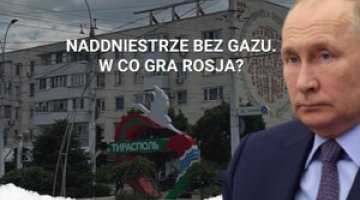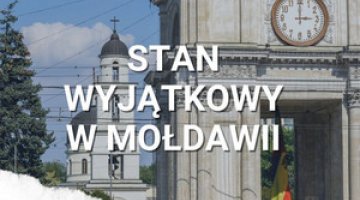Moldova: local elections in the shadow of a government crisis
Two rounds of local elections were held in Moldova on 14 and 28 June. The turnout was 49%, and the overall winners were the pro-European groupings, whose candidates won the mayoral elections in more than 70% of the towns, and captured about 60% of the seats in local and regional councils. The pro-Russian groups, the Party of Socialists under Igor Dodon and Our Party under Renato Usatîi, received fewer votes than the pro-European forces, but succeeded in replacing the Communist Party (PCRM) in a large majority of constituencies at the local level, and in strengthening their influence in the regions, especially in such important cities as Bălți and Comrat.
The success of the coalition’s Liberal Democratic Party (PLDM) and Democratic Party (PDM) at the national level resulted mainly from the fact that the voters in the local elections paid little attention to the party affiliation of the candidates. In fact, support for these groups has declined significantly over the last six months, as a result of the disclosure of large-scale fraud in the banking sector, among other reasons. The former Prime Minister, Chiril Gaburici, resigned on 12 June, probably as part of a strategy to improve the coalition’s image and begin its reconstruction.
The losers ...
The elections, which were evaluated generally positively by monitoring missions, reveal a complete collapse in support for the once-strong Communists, who have been marginalised by the Party of Socialists and Our Party. In comparison to previous elections, the PCRM has lost 60% of the mayoralties it held, and nationally, the number of Communist councillors has fallen by two-thirds. The party has lost the absolute majority it had held on the municipal council of Chisinau, as well as in its traditional stronghold of Bălți. In both cities, the number of PCRM councillors has fallen from 26 to just 3. This low score is the result of the ideological change made recently by the leader of the Communists, Vladimir Voronin (a shift away from promoting integration with the Customs Union, and backing the pro-European government), splits within the party, and the withdrawal of the Kremlin’s support. In local elections, the Communists’ electorate has been taken over by the Socialists and Our Party; this suits the interests of Moscow, since both groups are much more dependent on Russia than the Communists were in previous years.
... and the winners
Despite the pre-election polls, the pro-European PLDM and PDM parties, which together form a minority government, maintained (and even slightly expanded) their influence in local government, winning around 45% of the council seats (at all levels) and over 60% of the mayors’ offices respectively. In Chisinau, pro-European groups won a majority (of 26 councillors) over the pro-Russian parties (25). The non-coalition but pro-European Liberal Party also managed to keep Dorin Chirtoacă as mayor of the capital.
A good result was also noted for the European People’s Platform Electoral Bloc, which was founded in the spring of this year by the former Prime Minister Iurie Leanca, who won around 6% of the votes nationally. This result is noteworthy because it was achieved despite the party having minimal funding (compared to the major political parties), and without having wider access to the media.
The pro-Russian groups, Igor Dodon’s Party of Socialists and Renato Usatîi’s Our Party, received fewer votes than the pro-European forces, but succeeded in replacing the Communists in the great majority of constituencies at the local level, and in strengthening its influence in the regions, especially in major urban centres (Bălți, Comrat).
The results are a particular success for Renato Usatîi’s Our Party, which was established last year; its participation in parliamentary elections in November 2014 was blocked after an accusation that the party was financed from Russia. They won a majority of seats on Bălți’s municipal council, and Usatîi himself won the mayoral race there with 72.5% support. The party also won in Comrat (the capital of the Gagauz Autonomy), where the candidate it supported, Siergiei Anastasov, defeated the former mayor Nicolai Dudoglo.
On a countrywide scale, Our Party’s performance was generally not much worse than that of the Socialist Party, with which it shares many political positions. However, the Socialists lost the elections for mayor of Chisinau, and – although their representatives constitute the largest group on the city council – failed to win a majority on it. Both parties will work together at the local level (by forming coalitions), but Usatîi’s growing popularity compared to Dodon will cause tension. These two parties are appealing to the same electorate.
A new format for the coalition?
Despite their good election results, the leaders of the PLDM and the PDM are aware of the falling support for the government, as well as the rising public discontent, which is seen in their falling poll ratings, as well as the largest anti-government demonstrations seen in years, which have been regularly held since April by the ‘Dignity and Truth’ Civic Platform. In connection with this, they are making attempts to improve the image of the government. This probably explains the resignation of Prime Minister Chiril Gaburici from his position, announced on 12 June. The resignation of the Prime Minister allows the cabinet to be restructured, as well as an attempt to co-opt the Liberal Party into the coalition; this group enjoys stable support of around 10 per cent (and was part of the government up to March 2013).
Nor can it be ruled out that Gaburici decided to accelerate his departure, so that he would not have to bear responsibility for the possible collapse of Moldova’s finances. The day before his resignation three more banks, accounting for over 50% of the entire banking sector of the country, were placed under special surveillance due to concerns about the possible embezzlement of considerable financial resources from their reserves. At the same time, the government decided to nationalise Banca de Economii (one of the three banks from which a total of $1 billion was removed); this could block the launch of a new line of credit for Moldova from the IMF, which has called for the liquidation of the banks involved in the financial scandal. For the same reasons, the World Bank has decided to suspend the disbursement of its loan funds. In addition, according to the MEP Petras Auštrevičius, the EU forum is seriously considering withholding funding for Moldova, among other reasons because of the political situation in the country. If the aid is not delivered, in August Moldova may begin to have problems settling its current financial obligations, particularly in the context of poor economic data. The expected further deterioration of the country’s financial situation will accelerate the fall in the coalition’s poll ratings.
Post-election prospects
The local election results have been very satisfactory for the pro-European parties, especially in the context of the bad public mood and the lowest level of support in history for European integration (around 30%). In practice, however, the election results do not reflect real support for PLDM and PDM; this has obliged these parties to take action to improve their image. A warning signal for the coalition is the success of Iurie Leanca’s party, whose members managed to replace the PLDM’s councillors on Chisinau city council. It seems that support for this group will soon rise as its influence expands. A negative effect of the PLDM/PDM coalition retaining power will be the preservation of the existing political systems in the regions, and the systems of corruption accompanying them, which constitute one of the main obstacles to carrying out key changes for the regions, including local government reform. The practice of the pro-European coalition governments in recent years has shown that the constituent parties do not have the political will to undertake the real (and not pretend) modernisation of the state.
The local elections have shown that the pro-Russian electorate no longer sees the Communist Party as representing it. In the coming years the party may be completely marginalised, and perhaps even disappear from the political scene. At the same time, it seems that the support of left-wing voters, which has passed from the PCRM to the Socialist Party and Our Party, will gradually pass over the coming months in the direction of the latter group. Renato Usatîi is a much more charismatic person than Igor Dodon, and moreover he is perceived as being ‘outside the system’, having no ties to the existing political establishment. In addition Usatîi, all of whose business assets are in Russia, also enjoys more support from the Kremlin than Dodon. The consequence of the victories by the Socialist Party and Our Party in certain sensitive regions (Bălți, Comrat) will be a worsening of relations between these entities and Chisinau. However, the rise in popularity of the pro-Russian parties – even in light of the public’s disappointment at the pro-European coalition governments – will be limited by the geopolitical split which has long been persistent in Moldovan society into those who support European integration and those who favour rapprochement with Russia (and which was confirmed by the outcome of the elections in Chisinau, where the vote was politically, not personally motivated).
The greatest challenge for the ruling coalition in the coming weeks be to will fill the post of prime minister. Currently, it is difficult to predict who will take over, but according to the coalition agreement, it should be a politician appointed by the PLDM. However, changes to the agreement cannot be ruled out, especially in the context of the possible accession to the coalition of the Liberal Party. It is possible that the PLDM and the PDM will offer the post of Prime Minister to Dorin Chirtoacă, the mayor of Chisinau, to persuade the Liberals to enter the coalition. Creating a new parliamentary majority and electing a new head of government will be difficult, however, which could lead to a deeper political crisis.





